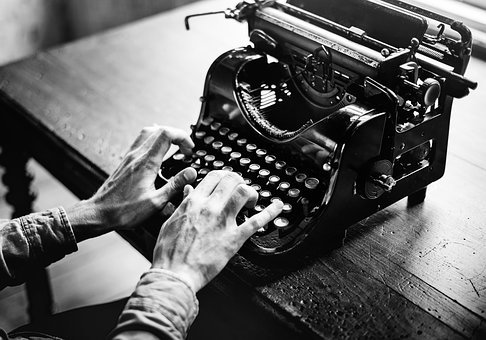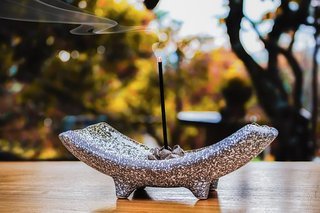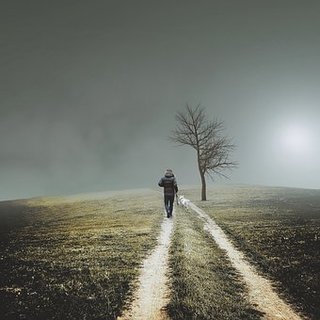Crushing Writer’s Block (Indie Author Series)


Writer’s block is one of the most frustrating afflictions that a writer can suffer from. It can cause unparalleled stress from project delays, missed deadlines, it can even make you feel like banging your head against the closest solid object. All of us writers have suffered from writer’s block at some point in our lives.
When I first began working on my novel, some days I had no idea what I would write about and didn’t feel like writing after expending so much mental energy at my day job. The thought of sitting down and trying to create anything when I felt this exhausted filled me with dread.

What I learned is something I’ll take with me for the rest of my life, writer’s block can be beaten. After a while I realized that I had control over my creative mood and it could be easily sparked given the right environment. Getting into the writing zone for me is like opening the channel, once the brain is tuned in to this channel of creativity the words just flow. Some of my best writing has been accomplished after I felt like I couldn’t write another word.
Studies have shown that under extreme stress the human brain shifts control from the cerebral cortex to the limbic system, which is the part of the nervous system associated with the fight or flight response. It’s difficult to say if stress causes writer’s block or vice versa but whichever comes first, writer’s block can usually be alleviated in just a few simple steps.

Following are some of my tips for getting your creativity back:
Try to Find a Proper Writing Space.
It’s important to find a space dedicated to only your writing. The environment should be quiet, comfortable, and as free from potential distractions as possible. After a while, merely stepping foot into this sacred space you create for yourself will help to coax your creative mood.

Create the Mood
Create a mood that's conducive to creativity. Play soft music or tracks that feature sounds of nature, light a candle or burn mild incense. I usually play classical music or binaural beats but it’s all a matter of finding what works for you. Experiment and find what things help you to get your (writing) groove on.
Check Your Head / Meditate
Access your frame of mind before sitting down to write. If you find your mind is full of other thoughts, responsibilities, and worries try this short meditation before beginning to write.
While seated in a chair, close your eyes, and straighten your back.
- BREATHE in deeply through your nose for a count of 5;
- HOLD the breath for a count of 3; and
- EXHALE through your mouth for a count of 5.
Repeat this breathing exercise 5 times. Each time you exhale imagine the stress and worries of the day leaving your mind and your body. I know, it sounds deceptively simple but this is a powerful tool. Your body and mind will be flooded with oxygen and you should find yourself in a much more relaxed and creative frame of mind.
Be Kind To Yourself
Remember, never judge your first draft too harshly. Just write. First drafts are never perfect but many times contain the seeds of a great idea but, like a diamond in the rough, must first be cut and polished to reveal its many facets of brilliance. The more you remember to be kind to yourself, the less anxiety you’ll have and the better your end product will become.
Outline Chapters
When working on long fiction, outline your chapters first. The key to finishing a novel is breaking it into manageable chunks. Many people sit down and try to write a 60,000+ word novel while staring at a blank white screen or page and become overwhelmed to the point of being paralyzed. As a result, often times their book is never finished. Create the framework of the book first then fill in the gaps. This is the fastest and easiest way to finish your novel.

If All Else Fails, Walk Away...
...momentarily. Too much work doesn't just make you a dull person, it can also stifle creativity. Engage yourself in something other than writing. It might sound crazy but walking the dog has freed me from the grips of the most debilitating bouts of writer’s block. Usually after a few minutes the ideas begin flowing again. I’ve used my iPhone more times than I can count to record the ideas after the dam breaks.

Above all, believe in yourself and keep writing. Poet Sylvia Plath said, “The worst enemy to creativity is self-doubt.” This is so true. As a writer you will eventually look back and realize that you have become better with each word you’ve typed, the real key is continued practice. In the end it doesn’t really matter if that particular writing session is good or bad, the most important thing is the act of writing itself. Write on!
Are you enjoying this Indie Author Series?
If so click here to read another installment in the series.
*I am an American novelist, poet, traveler, and crypto-enthusiast. If you’ve enjoyed my work please sign up for my author newsletter at my website. Newsletter subscribers will receive exclusive updates and special offers and your information will never be sold or shared.

Eric Vance Walton - Media






Nice one, meditation would definitely help or Qigong practice which I do helps get stagnant energy to flow again, which is another way of saying getting the creative juices flowing.
Meditation has been very valuable to me. Qigong would be another great tool in the arsenal. Thanks!
The story of a beautiful friend
Thanks!
Today I just walked away from writers block, wasn't going to post, no ideas, but as I went about my activities a story found me, next thing I was posting.
Don't you love when that happens? All of the really good stories find us.
Interesting post. I had written/spoken about the topic a while ago here -https://anialexander.com/writers-block-really/
Thanks for the link, Ani! I remember you from Choose Yourself! Great to see you here.
:) making my first baby steps here
Having written a few books in my time, I can agree these rules are solid. Also don't be afraid to write rubbish then edit the hell out of it and/or discard. Even your best writing is likely to get eviscerated by your editor, so go ahead and spew out some text instead of worrying yourself to death about another day and another blank page. You never know, it might be good.
Thanks, I totally agree. The story sometimes takes a while to mature. I love the free-writing technique for this reason...set a timer for a specific amount of time and continue writing until the entire time.
Pomodoro technique still works
My own MO is based on advice given by Harlan Ellison:
Commit to at least 1000 words a night. If I can maintain a quota, then I can feel better. And since I'm usually working on 7 or 8 different things, I'll try and get 1000 words down on 3 or 4 of them.
Never finish the scene, unless you can finish the story. If I write "And he went to kill her, and he said to her --" I'll stop there, so I can pick up the momentum when I come back to it.
I'll always stop when I'm hot. Never cold, because it plays into the momentum from the last point. If you can see the logical conclusion of where you're going, it makes it that much easier to pick up and go.
This is great advice. When working on novels I try to stick to the goal of a certain number of words (usually using the NaNoWriMo model.)
thaks.
Great writers and highly motivated me to write
Thank you!
very interesting !
I have NEVER written fiction BUT I do love to write. I find that when I need inspiration, I just get out and people watch (they are SO interesting and give me plenty of material.) Thanks for sharing these great tips @ericvancewalton. Someday I may even branch out into new territory. ;)
Ah, fiction is SO much fun to write. If you've never tried it before I'd suggest attempting your first short story. This is a wonderful way to begin. Thanks for your comment!
I might just do it, dang it. I just might. Following you!
You should! Thanks for the follow!
I often find that my block caused by resisting the story. Like, the story may be telling me where to go, and I think "Nah. that can't be right. Let me think about this some more." And so on. When I surrender to the story, the writing comes back.
So, the story is telling itself, and I just have to listen to it. I dunno how many times that's happened, sometimes for days on end, and when I finally give in, the writing flows.
Great point! Sometimes we're just a channel and our thoughts and desires only get in the way. I've found my best writing happens when I merely step aside and let the story tell itself! Thanks for your comment.